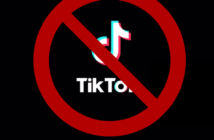By Greg Robinson, Multimedia Editor
On Tuesday, November 2, Florida voters went to the polls and defeated the much-debated Florida Comprehensive Land Use Plan known as Amendment 4. The ballot measure, which required a 60 percent majority to pass, has been the subject of much controversy for the past few years.
The measure, officially designated Constitutional Amendment Article II, Section 7. or Amendment 4 on the 2010 Florida ballot, was called for by proponents of hometown democracy. They argued that passing this measure would allow voters in each county to have a say in the decisions of construction projects and developments in their areas.
Opponents of the amendment argued that passing the measure would allow residents who live far from the proposed construction or land rezoning to decide on future projects. This is true of Pasco County. For instance, the new business building at Saint Leo University would have been subjected to a county-wide vote had Amendment 4 already been in place. University President Dr. Arthur F. Kirk Jr. has this to say in a recent campus-wide email.
“If Amendment 4 was already in the Florida constitution, the university’s plan to build the School of Business building, and the other projects underway or planned for the next couple of years, would have had to be placed on the November ballot (with many other development plans in the county) to be voted on county-wide as a referendum. Voters in Hudson, Port Richey, and Holiday would have determined whether or not Saint Leo would build new buildings.”
Despite these concerns, supporters of the amendment believe that construction has gotten out of hand in Florida and want residents in each county to decide what gets built and where. Palm Beach land-use lawyer Lesley Blackner petitioned signatures for five years to get this measure on the ballot. She champions “Florida Hometown Democracy” and believes people have a right to decide on what is built in their area.
“Over time, I just realized that somebody needed to put voters in charge of their comprehensive plans, because I just don’t think these commissions are able to do it, are willing to do it.” Said Lesley Blackner in a quote on the tampabay.com news page.
One of the biggest criticisms of the Amendment was the financial burden it could have placed on the already weak and stretched Florida economy. If the Amendment had passed it would have resulted in millions of dollars of taxpayer money spent on the voting, and millions more on potential legal costs.
In addition, the wording on the official ballot clearly stated that the financial impact this amendment would have could not be precisely estimated. Opponents of the measure claimed it would be significant, however. A business-funded group called Florida Tax Watch estimated that the cost of the elections would be at least $45million per year. Also, they anticipated several million in legal costs from the lawsuits that would inevitably result.
Since the amendment has been defeated, the same amendment can never be placed on the Florida ballot again. A similarly worded measure could find its way onto the ballot in the future, however unlikely.
The path Amendment 4 took to get to this point has been a long one indeed. Blackner has been pushing it for almost 5 years, and would have gotten it onto the last Florida election ballot were it not for a glitch in the number of signatures required to have it added.
A lawsuit was attempted by opponents of the bill who were trying to keep it off the ballot. After spending some time being kicked around by the courts the appeal was dropped and the measure was allowed to go on the ballot




